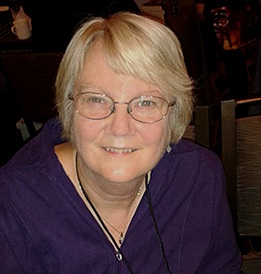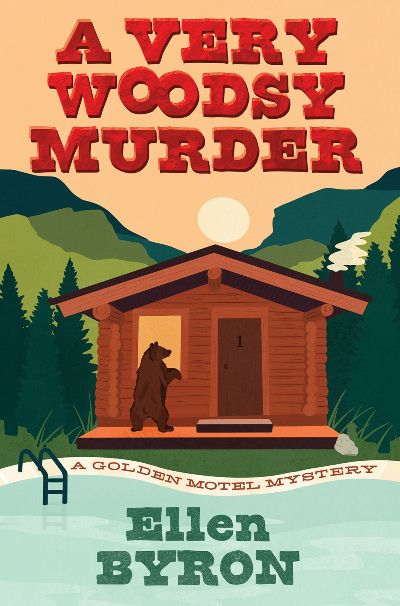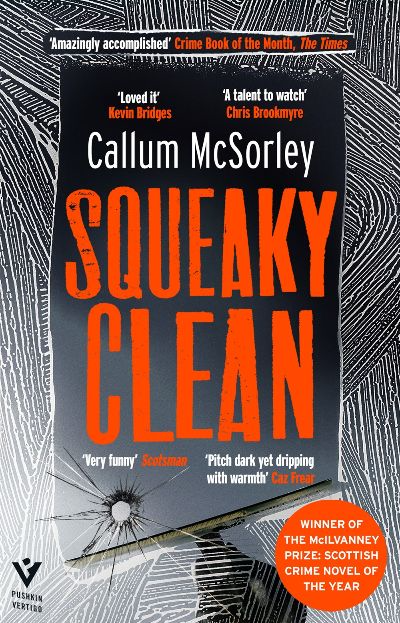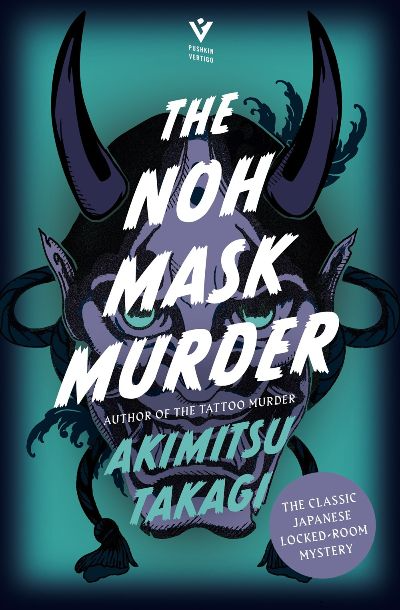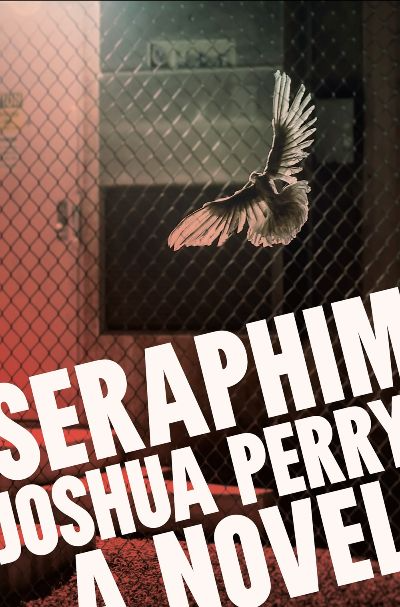Any cozy reader will assure you that there are few places more dangerous than the community garden. And Maggie Walker—who helped create the garden in Marlowe, her small Berkshire town—is reminded of this fact when opening day arrives and she discovers a boot jutting out of the garden. Attached to a foot. Which is attached to a body. Yikes! To make matters worse, Violet, whose idea the garden was, has seemingly disappeared. Maggie has only recently returned to Marlowe, smarting after the death of her “not-quite ex-husband,” and taking over the home of her recently deceased grandmother. But one thing keeps happening after another, from threatening telephone calls to harassment from a cousin as Maggie tries to find out what happened to Violet. An engaging look at small town life and death, this book was the recipient of the Minotaur Books/Mystery Writers of American First Crime Novel Award.
Mystery & Detective
A missing nine-year-old boy has Deputy Mattie Wray bring her K-9 partner, Robo, into uncharted territory to initiate a search and rescue for him in Mizushima’s latest terrific series. By leaving Colorado and heading to the Olympic Mountains of Washington State, Mattie risks Robo’s job and delaying her wedding. From the start, the information she and the team of searchers receive is a bit sketchy. When one of the other searcher dogs gets ill, it becomes clear that someone doesn’t want the team to find this boy. Since the missing kid is the son of a celebrity, and the longer he’s out in the wilderness, the louder the clock is ticking to still find him alive and keep away the paparazzi. Mizushima’s series engages on every level: the authenticity of the search scenes; the setting, in which the reader can feel the moss and dampness of the region; and the insight into the operation of coordinated efforts to find missing people. Gathering Mist is the perfect place to start if you are unfamiliar with her previous novels, and Robo is the most incredible dog ever. Who’s a good boy?
Hooray for a new series that is fresh and funny, sophisticated and country. Dee Stern has had better years. Her Mom died unexpectedly. Her second marriage went kaput. And her career—she’s a sitcom writer in LA—is petering out. On a drive through the country to escape from it all, she discovers the Golden Motel, a mid-century-modern motel nestled in the foothills of the Sierras. And best of all, it’s FOR SALE. It doesn’t take much for Dee to convince Jeff—husband #1—to join her in this “lifestyle change” and become co-owner of the Golden Motel, Findgold, CA. In no time, they attract their first customer, one Michael Adam Baker who—freakishly enough—Dee knew as a frenemy from the sitcom world. What are the chances of that? Zero to none, it turns out. By the time she discovers what Michael is really up to, it’s too late, and their first guest is also their first victim. Agatha Award-winning author Byron has taken a fascinating community, great characters, the tension between city and country people, and the indomitable Dee to create a high-energy and hilarious series that readers won’t be quick to forget.
This piercingly written tale of modern life in Ghana is preceded by a warning in Quartey’s heartfelt prologue that his novel includes scenes of violence against gay characters and should be approached with “caution and mindfulness.” That’s fair to say, but it must also be noted that the violence is in keeping with the story and not gratuitous, except on the part of the criminals. The effects of white-supremacist missionary work in Africa also loom large in the story, which centers around the murderous homophobia stoked in Ghana by an American evangelical Christian, Chris Cortland. His bigoted ways have brought him to Africa where he finds a home among those who believe that “homosexuality isn’t indigenous to Ghana.” The tale features many well-drawn characters, all presented in an opening character list (don’t be put off by the full to bursting cast here!). They fall into three main groups: trans women who are being murdered, with famous Ghanaian pop singer Henrietta Blay the focus; Emma Djan and the other private investigators who who make this police-procedural-esque, employed because “the police might not give the case high priority”; and the smarmy, self-righteous circle of Americans and Ghanaians around Cortland, whose behavior means the book could also come with a domestic violence warning. The murder mystery is compelling here, but readers will also be absorbed by the politics and religious machinations and the emotional brutality the mixing of the two creates.
A richly depicted, absolutely haunting, and totally compelling novel from the consummate historical crime novelist Rhys Bowen. It’s 1968, and Liz Houghton is writing obituaries when she really wants to be a reporter. The disappearance of a young girl prompts her to go rogue and take on the investigation—with help from her roommate, Marisa, a police detective. Liz finds echoes of 1968 in the disappearance of three girls during World War II, lost while being evacuated to avoid the bombings. She eventually discovers the village of Tydeham, abandoned since it was taken over by the military during the War. Mysteriously drawn to the village—and with the help of a young man she meets there—Liz begins to make connections between what happened in the past and what lives on in the present. Parentage, great country estates, elderly and vulnerable parents, romance, and young women elbowing their way into the professions are all part of the tale. Perfect for book groups, purchase extra copies.
Davey Burnet’s life is boring, tough drudgery, made no easier by his shame and frustration over having caused a lot of his own problems. He works at a Glasgow car wash where the work is both boring and freezing and the annoying customers bested only the even more draining pothead boss. But Davey wishes for the boredom back when an impulse decision brings a world of trouble down on him and the business. After nouveau-criminal-riche Paulo McGuinn takes to bringing his ostentatious vehicles to be cleaned and Davey “borrows” one of them to make it to a custody hearing for the daughter he desperately wants to see, the car is wrecked and suddenly Paulo is the de facto owner of the car wash and of Davey’s grim future. Paolo’s just-one-of-the-lads bonhomie is a wafer-thin veneer over viciousness; not taken in by it is DI Alison McCoist, whose pecking away at the car wash’s goings on are Davey’s only hope. While this fast-moving tale is dark and has moments of real terror, it’s also grimly hilarious, especially in McSorley’s skewering of Paolo’s inflated self regard. The dialog takes some getting used to, with the character’s thicker than thick Glasgow accents faithfully reproduced, but once readers acclimatize they’re in for a rollicking, satisfying read.
First published in 1949 and now elegantly translated into English for the first time, this award-winning atmospheric puzzler by a celebrated author from Japan’s golden age of detective fiction is both an intricate locked-room mystery and a metafictional take on how to write such a crime novel. In the summer of 1946 at a bathing resort, Akimitsu Takagi, a devotee of mystery fiction and an aspiring amateur sleuth, runs into Koichi Yanagi, an old school friend who has just returned to Japan after serving in Burma. Koichi now works for the respected Chizui family, whose members appear to be as cursed as Edgar Allen Poe’s Usher siblings. Ten years earlier, the patriarch, Professor Chizui, died of an apparent heart attack, although Koichi suspects foul play; his wife was institutionalized in an asylum; and recently their daughter also lost her sanity. One night, an eerie figure wearing a demonic hannya Noh mask is spotted in the upstairs window of the Chizui mansion; Taijiro, the professor’s brother, asks Akimitsu to investigate. By the time the sleuth arrives on the scene, Taijiro has been found dead in an armchair in his locked bedroom, with the mask on the floor beside him and the scent of jasmine lingering in the air. When Akimitsu learns that someone has ordered three coffins, he fears that the worst is yet to come. The author cleverly structures his plot like a Russian nesting doll, with one puzzle embedded within another puzzle inside another puzzle, until it is resolved in a surprising and satisfying conclusion. Agatha Christie and S.S. Van Dine fans will enjoy this twisty tale.
Call me old-fashioned, but when I’m reading a cozy, I like a corpse to make an appearance in the first quarter of the book. Puzzle Me a Murder delivers not just a corpse, but the body of George Milliner, the husband of Ruby, who just happens to be best friends with Alice Pepper. And Alice is totally at the center of this book. Director of the local public library (job and library are portrayed 100 percent accurately), Alice rules from her huge, old Craftsman house, her settlement in the divorce, surrounded by friends and family. So when George is murdered—he was last seen in his house chasing a young, scantily clad, blonde-haired woman—Alice, Ruby, and others spring into action, and having a granddaughter on the police force certainly helps. While cooking, eating, and working on puzzles provide the crew with some down time, Alice and Ruby are more often out and about ferreting information to help determine George’s murderer. What they find is shocking: corruption in local government, blackmail from vendors, and the harassment of some of West Hazel, Oregon’s leading citizens. There’s a buoyancy to this book that makes it a delight to read, while still capturing the evil that dwells among us. I am so looking forward to another Alice adventure.
Quebec Detective Inspector Armand Gamache, so beloved of readers after 18 outings that showcase his fierce love for his family and his quiet investigative smarts, here finds himself far from his village of Three Pines, both in his investigation and emotionally. After he accepts a mysterious invitation to meet someone at a Montreal Cafe and the rendezvous ends in a terrorist attack, Gamache must hit the road to find out who his coffee date was and why he was seemingly murdered. Clues are few and Armand can’t trust his department as there are signs of an informant, but the lives of millions of Canadians are on the line. There’s a rich religious element here, with Gamache traveling to monasteries and even having a Vatican nun grilled as to her past. This book contains a more frightening thriller element than in some of Penny’s previous tales. But as the author’s acknowledgment so poignantly states, “Home. That’s really what the books are about.” Readers will happily follow Gamache back there to his beloved Reine-Marie and their now overflowing brood. A tense, satisfying tale.
Every book has words, is comprised of words, but this book is about words. The ones that 16-year-old Robert Johnson used when his charter school teachers, who treat optimism as a kind of hygiene, told him he should confess to the murder of Lillie Scott, a hero of the rebuilding of New Orleans, who hired at her restaurant those down on their luck. The words the boy can’t or won’t say about what really happened, which barely matters anyway since the system will drag him in now or later, formed as it is of “strange empty words in the shape of language but without any meaning.” And the words that are unsaid as Lillie “[lies] down in the street so noiselessly, slow like a sheet in the breeze flutters to the ground.” Shoulder to the wheel of all this is Ben Alder, a former rabbinical student and son of a linguist, and his dude of dudes, Grand Old Dude of York, Mayor Van Dude of Dudetown, Boris Pasternak. These public defenders ask for every case involving a child, and Ben becomes Robert’s lawyer. All the boy wants is to talk to his dad. But Ben doesn’t tell him that he’s also representing the father, who, unknown to the boy, is in the same jail. Ben has “no questions that are small enough for the courtroom,” but still wrangles his fear and his clients through the morass to a satisfying outcome, one that will leave readers with large questions of their own, mainly about this country’s treatment of Black boys. Debut novelist Perry, a former New Orleans public defender, has wonderfully distilled a world of hurt onto the page.


